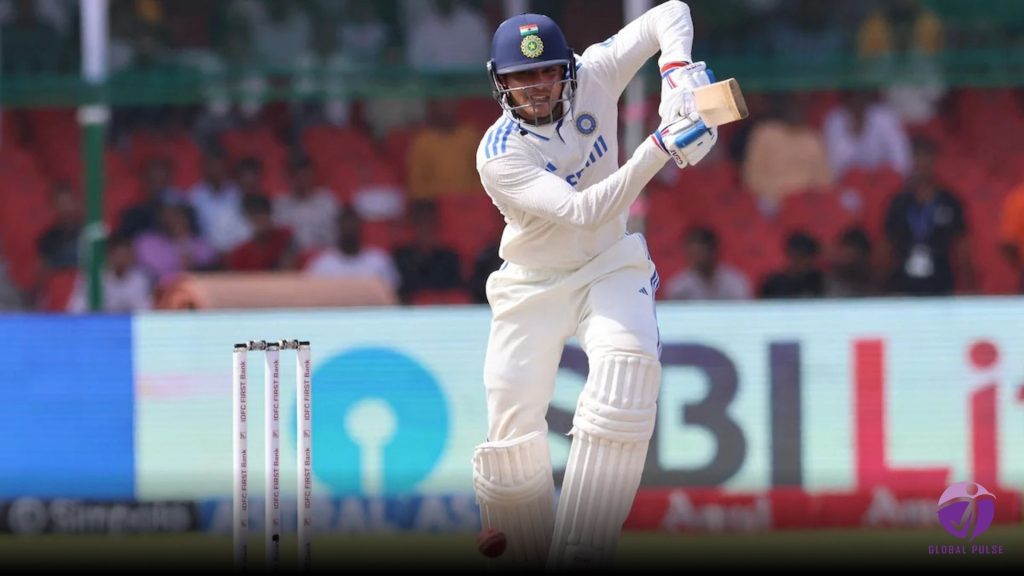In a significant development for Indian cricket, the board has officially announced Shubman Gill as the new captain, following Rohit Sharma’s unexpected retirement from Test cricket nearly three weeks ago. Gill will lead the team in the forthcoming five-Test series against England, which is scheduled for June.
At the age of 25, Gill has been appointed as India’s 37th Test captain, marking him as one of the youngest to hold this prestigious position. He follows in the footsteps of notable predecessors such as Mansur Ali Khan Pataudi, Sachin Tendulkar, Kapil Dev, and Ravi Shastri.
The appointment signifies a pivotal moment for Indian cricket. The team he oversees is missing notable players, including batting legends Rohit Sharma and Virat Kohli, spin expert R Ashwin, who stepped away from the game six months prior, and pace leader Mohammed Shami, who is currently out due to fitness issues.
The squad boasts a wealth of young batting talent; however, the absence of seasoned players like Kohli and Sharma will be felt significantly. Even with the presence of Jaspreet Bumrah, Ravindra Jadeja, and Mohammad Siraj, the bowling attack appears to lack a particular polish.
Gill’s difficulties are compounded by the fact that India has not won a Test series in England since 2007.
The appointment came after extensive discussions involving chief selector Ajit Agarkar, coach Gautam Gambhir, and discreet negotiations with other potential candidates.
Despite Bumrah’s position as vice-captain during the tour of Australia, apprehensions regarding his capacity to manage the demands of a five-Test series ultimately led to Gill being favored for the role.
A remarkable talent hailing from Punjab, Gill has consistently navigated the pressures of expectation with grace.
In 2014, at the age of just 14, he made headlines by scoring 351 runs in a world-record opening partnership of 587 alongside Nirmal Singh during the Punjab Inter-District ML Markan Trophy. The sound of the knock served as a testament to his family’s courageous decision to relocate from the border village of Chak Kherewala to Mohali in pursuit of enhanced training and increased opportunities for the promising young talent.
His consistent junior performance propelled him into the under-19 ranks, where Gill made his significant mark for the first time.
The vice-captain of the squad that participated in the 2017-18 U-19 World Cup distinguished himself as India’s leading run-scorer, notably achieving an impressive unbeaten 102 against fierce rivals Pakistan in the semi-final match. In the decisive game where India triumphed over Australia, Gill contributed a valuable 31 runs.
During that period, the spotlight was firmly fixed on Prithvi Shaw, the U-19 captain whose remarkable achievements in Mumbai’s school cricket led to comparisons with the legendary Sachin Tendulkar. His ascent in the sport has been nothing short of extraordinary, marked by a debut century in Test cricket, followed by another impressive performance shortly thereafter. By the year 2020, his career was showing signs of disintegration.
After a brief hiatus, Gill made a striking entrance in his Ranji Trophy debut, scoring a half-century that was soon followed by a remarkable century. With Yuvraj Singh as his mentor, he honed his batting skills and enhanced his game awareness.
Impressive performances have prompted selectors to evaluate Gill as a potential replacement for Shaw. He made his Test debut in Melbourne in December 2020, a pivotal moment in India’s remarkable comeback series victory.
Tall and graceful, Gill’s technical precision and elegant stroke play, particularly in front of the wicket, distinguish him as a promising young talent in the sport. Affectionately referred to as the ‘Prince’ by his family, this moniker quickly evolved into a defining aspect of his cricketing persona. Regarded as a rising star in the cricketing world, he is frequently mentioned as a potential successor to Virat Kohli, poised to become the leading batsman of the next generation.
The validity of that promise has yet to be established. While Gill shares the distinction of being an all-format player with Kohli, he has not yet matched Kohli’s early dominance or demonstrated the same level of ambition and match-winning prowess. This is particularly evident in the Test arena, where his tally of 1,893 runs in 32 matches, though respectable, falls short of remarkable.
Gill’s inaugural captaincy arrives less than five years following his Test debut, marking a pivotal moment in his professional journey.
Armed with extensive international experience that has the potential to transform his batting from merely good to exceptional, he now confronts a significant challenge against England’s aggressive Baseball approach in demanding conditions. A victory in this context would significantly enhance his reputation as one of the leading Test players.
However, it is in the role of captain that Gill is likely to encounter more significant challenges.
India’s new World Test Championship cycle commenced with the England series, marking a transition after two finals appearances and a disappointing early exit in the most recent tournament. India’s performance in recent Test matches has been disappointing, marked by consecutive series defeats against New Zealand and Australia.
In order to elevate India from its present challenges, Gill must take the helm not only as a batter but also as the captain of a revamped team. He will need to grasp the intricacies of the dressing-room dynamics and potentially redefine them for future success.
Chief selector Ajit Agarkar stated, “Gill is a young man we are investing in not just for one series, but for the next five to six years to advance Indian cricket.”
The new captain can take great comfort in that assurance. The recent appointment not only introduces a level of pressure but also ignites significant hope, presenting a chance to establish a unique legacy within the annals of Indian cricket history.













